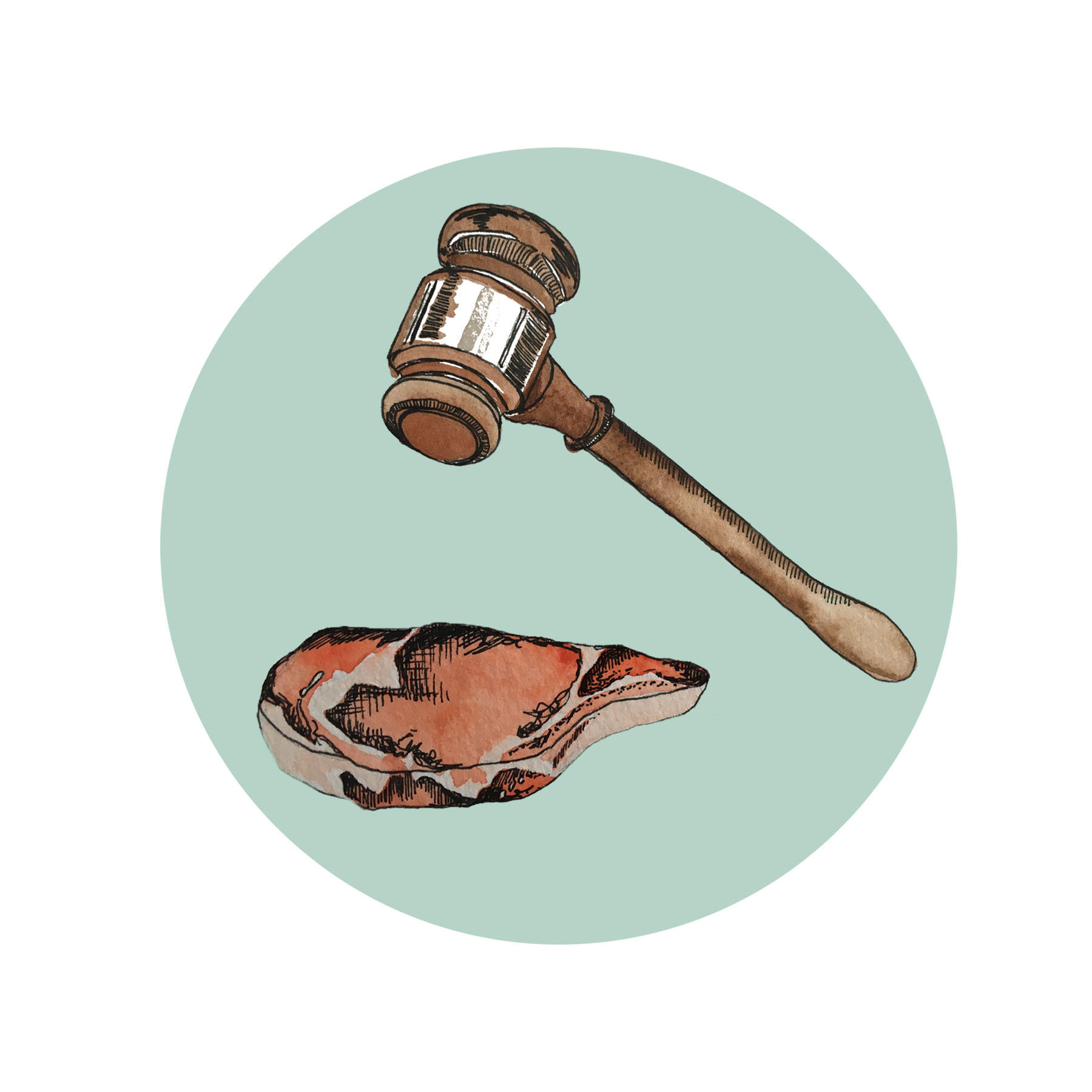Law and cooking are both organized by specific rules, logic, and hierarchies—but within those boundaries, there is a degree of flexibility and creativity. In the law, “rule of law” expresses the order that is provided by a system of laws. In the kitchen, mise en place (“putting in place”), or prepping ingredients and tools for service, organizes a cook in deliberate efficiency. In their own ways, each profession attracts a particular mindset, and draws people who are meticulous, okay with working long hours, and are lifelong learners. So perhaps it’s no surprise that there are quite a few trained lawyers who are also involved in food.
Erin Wade is one such person. For the co-owner of Homeroom , a mac ‘n’ cheese casual dining spot in the Temescal neighborhood of Oakland, California, cooking didn’t initially seem to provide a clear path to financial stability. Law seemed like a good option for people who are “smart but lack any clear direction,” she says, and her interest in progressive criminal justice reform prompted her to study at UC Berkeley School of Law. But a passion for the issues couldn’t shake a sense that law wasn’t the future she truly wanted.
“There was a part of me that could not envision myself going to an office every day. I couldn’t see it, it was like a death sentence,” she says.
In the midst of the Great Recession, she was laid off from Littler Mendelson, a massive employment and labor law practice based in San Francisco; she saw it as both a wake-up call and an opportunity and opened her restaurant in 2011. Her “only regret,” she says now, was “not having done it earlier.”
 Illustration by Christine Cover
Illustration by Christine Cover
The legal profession is notorious for low job satisfaction and retention as well as high rates of struggles with alcoholism, depression, and anxiety. A 2013 study on workplace happiness ranked associate attorney as the worst in job satisfaction and a 2015 study on substance abuse and mental health found that one in three practicing lawyers are problem drinkers. Add crippling debt from law school and a saturated job market, and some attorneys elect to transfer their skills at juggling complex details to business and other professions. Wade describes law as a “broken, terrible system that trains your mind in adversarial, negative thinking.” For her, “food is the opposite: it’s collaborative, positive, about joy. It’s an antidote.”
For some, leaving the legal profession is more of a necessity than a choice. Septuagenarian Maria Cano, better known to some as the Arepa Lady of Jackson Heights, Queens, jokes that “back in the stone age” she saw law as “a way of helping people.” As a student during the 1960s, she was deeply influenced by the revolutionary movements occurring in Latin America, particularly the ideas of Camilo Torres, a socialist priest from her native Colombia who interpreted faith from the perspective of the poor and working classes.
Life, however, had other plans. Cano was one of more than five million civilians who were displaced due to the “complicated and violent” ongoing Colombian armed conflict over the past four decades, leaving behind a varied legal career as a civil inspector working on asset seizures, conducting preliminary investigations in homicides, and as a judge. After migrating to the United States in the 1980s, a friend suggested selling street food as a good option, because it provided the flexibility to be with her young children.
Now, as the operator of a storied food cart during the April to October season and a small restaurant with her sons year-round, she “loves to see the expression on people’s faces, and the satisfaction when they taste and enjoy an arepa that I made with my own hands.”
 Illustration by Christine Cover
Illustration by Christine Cover
For some, however, food and law coexist beautifully. Alex Pineiro was a line cook at Toro , a high-end tapas restaurant in Chelsea in New York, while also pursuing his law degree at Pace. He left the kitchen in January to finish up his final year, but he’s been around the restaurant business his entire life— his dad, a native of coastal Galicia, Spain, owned a restaurant in New Jersey. He says he enjoys the adversarial process of law, and sees opportunities in food policy and licensing; however, he still thinks of the kitchen as his “happy place.” He wants to combine the two worlds after he graduates. “I’m hoping to get involved with a place like Blue Hill at Stone Barns, to work on food policy,” he says.
Food advocacy work can create positive change over the long haul, which is what draws many idealistic and collaborative food lovers to the field. Mike Dulong is an attorney at Riverkeeper in New York, an environmental watch group concerned with protecting the drinking water supply and creating standards for water protection in the state. His work centers on impacts of industrial agriculture, particularly CAFOs (Concentrated Animal Feeding Operations), on water quality. There are an estimated 620,000 dairy cows in New York producing 120,000 pounds of manure a day, or 27 billion pounds a year. That literal load of crap can introduce E. coli bacteria, giardia, and high levels of nitrogen and phosphorus into New York’s water.
In an attempt to spur the state dairy industry, Governor Cuomo hosted the first Yogurt Summit in 2012, and some regulations were rolled back; Riverkeeper advocated for a “comprehensive nutrient management plan” for waste, including putting money in the state budget to develop ample storage capacity. Dulong, a graduate of UCLA School of Law, sees increased opportunities to connect food and the law: “Today, people are thinking about the effects of pesticides and antibiotics, farmworkers, about where food comes from, the supply chain,” he says.
 Illustration by Christine Cover
Illustration by Christine Cover
The ability to affect that kind of large-scale change is what drew Shannon Liss-Riordan to public interest law; after graduating from Harvard Law School, she spent the last two decades representing workers in wage and hour disputes. Many of those class action suits involved restaurant workers, the folks at the base of an enormous industry in which it’s notoriously difficult to advance people’s rights.
“It’s hard to organize, because restaurants are often small, unions are scarce, and workers are splintered,” Liss-Riordan says. She would know better than most what it takes to run a restaurant: she’s also the owner of a pizza place, Just Crust , with her husband, which they purchased at a bankruptcy auction after she filed a class action suit against a pizza chain that owed overtime pay to workers. When no one stepped forward to purchase the business, she jumped at the opportunity, and now runs one of a growing number of restaurants where workers are paid fairly. She continues to practice law, and says she’s glad to see more public awareness and organizing of hospitality workers.
If law provides the structure to how we interact as a community, food provides a community with a shared sense of belonging and nourishment. And with so many opportunities springing up as eaters become more knowledgeable and politicized, it’s no wonder that more people are combining their interests in food and the law—or moving between the kitchen and the courthouse.










